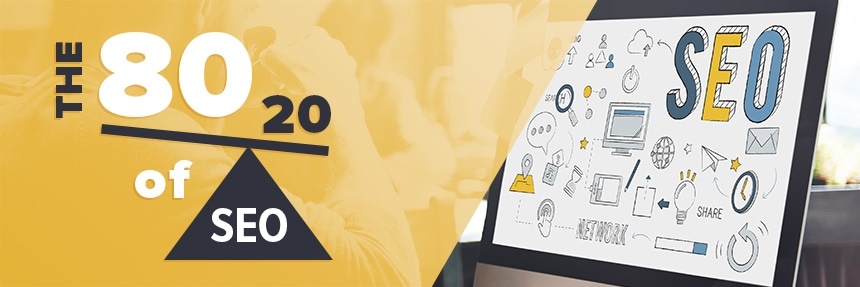
Search Engine Optimization for the Time Poor Scientific Marketer
The world-famous Pareto Principle says that 80% of business results are derived from 20% of your efforts. This idea has been applied to all areas of business, time management and personal growth—helping people focus in on what’s really important and reach their goals.

Did you know that the very same principle can be applied to SEO?
Search engine optimization is an ongoing effort. It requires you to develop a strategy, adapt it over time and keep moving forward regularly. That said, it doesn’t have to be mysterious or time-intensive. By focusing your efforts on key tasks, you can maximize your ROI.
The issue is this: In the B2B sector, and in science-driven industries particularly, most leaders don’t have a clear idea what those crucial tasks are.
Let’s zoom in on ten of the most effective SEO practices you can implement in a day or two:
Keyword clarity
Keywords—the specific phrases your prospective customers use when they’re searching online—are the bedrock of all SEO efforts. Established B2B businesses often make the mistake of using their product names as their only keywords; this limits their visibility to prospects at different stages of the buyer journey.
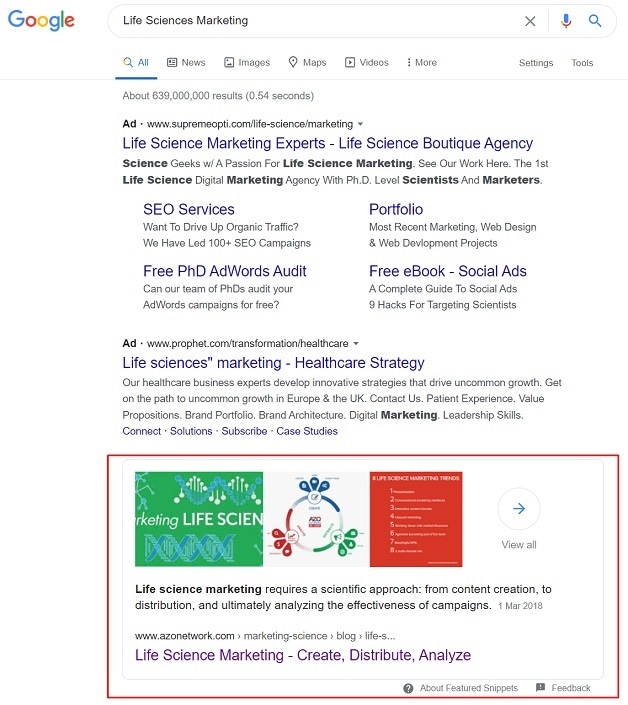
Our site AZoNetwork ranks no.1 for the keyword "Life Sciences Marketing", and we also have the featured snippet!
Since keywords are a core input into the rest of your strategy, all efforts should start here. Tools such as the free Google Keyword Planner can help you capture trends and relate them to your existing buyer personas. Having 4-5 keywords to focus on can get your long-term SEO efforts off to a strong start.
Page Title Optimization
Page titles are among the most important on-page SEO factors. On-page factors are those you can control by making direct changes to your site’s content, structure or technology, and have the most impact on user experience. Among these, page titles are both highly visible to your users and valuable to search engines.
Page titles should be both descriptive and branded. Each one should incorporate your brand name, the topic of the page—phrased in a keyword-rich way—and a value proposition or selling point. Including all three of these factors is essential, since a compelling page title will entice search engine users to click through to your site.
Keywords in H2 and H3 Headers
Don’t neglect internal headings in your pages! They provide context to each page and help users find what they want. Web users tend to skim when they first reach a page. Instead of reading from beginning to end, they’re mainly interested in two things: a) Establishing that they’re in the right place, and b) Finding the section of the text most applicable to them.
Headers need to be helpful, but should also incorporate keywords. Keywords used in headers have a bit more power than those elsewhere in page text. For maximum effect, use the different header tags—h1, h2, and so on—in structuring each page. This might take longer than a few minutes, but it can empower prospects to get more value from your pages.
Link to Other Pages Within Your Page Text
Bounce rate is the percentage of people who leave your website soon after entering it, only glancing at a single page before they decide to go elsewhere. While bounce rate is the scourge of digital marketing, session length is its opposite: The longer a user spends on your site, the more likely he or she is to take the next step and inquire about one of your products.
B2B decision-makers are inclined to move fast when they decide a site isn’t meeting their needs. One way to keep them looking for something that might engage their interest is by adding links to related products and services strategically in your site. Users are generally more likely to click on links in page text rather than return to your navigation menu.
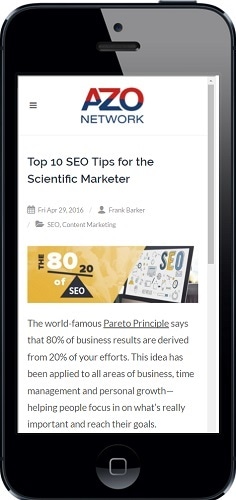 Ensure Mobile Compatibilty
Ensure Mobile Compatibilty
Since Google launched mobile compatibility as a ranking factor in April 2015, site owners and other search engines alike have rushed to catch up. It wasn’t that long ago that ensuring mobile compatibility was a complex, often convoluted task—but that is no longer true. Sites using modern content management systems can typically update to full mobile compatibility in a single click, while older sites have an abundance of convenient conversion software to choose from.
Test Your Site to Ensure Fast Performance
Many SEO guides ignore or gloss over the importance of site performance—that is, ensuring that content loads quickly and completely for every visitor. As with non-mobile compatible sites, slow and error-prone websites will take a hit in SEO. A free online speed test such as PageSpeed Insights by Google will help you quantify site performance. If site speed is low, PageSpeed Insights will provide actionable steps to resolve technical and design issues.
Eliminate Broken Links
Over time, both external websites and internal pages in your own site may move or change names. This creates broken references throughout your site that not only confound your visitors, but can prevent some pages from being reflected in search results. The World Wide Web Consortium offers a free broken link checker that helps you isolate and eliminate broken links. It can even check your entire site at once.
.jpg)
Submit an XML Sitemap to Google
An XML sitemap is a tool that helps search engines verify that they’ve found and listed every public page within your site. Without it, pages nested deep within your navigation may not be listed in search results—or the information on those pages may not be updated by search engines. Google lists a number of third-party tools that can automatically generate an XML sitemap for you. The process takes only a few minutes even for large sites.
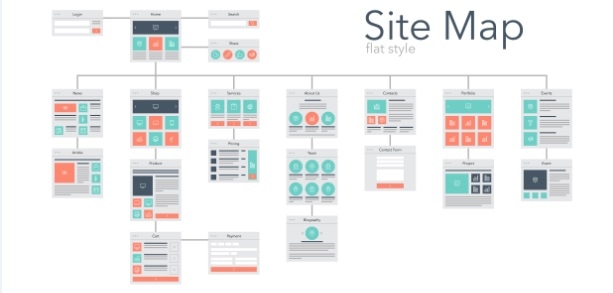
SEO is Essential to Digital Marketing Success
The scientific sector is more diverse than ever. Both new and established brands are becoming increasingly proactive about marketing, especially in the digital sphere. With these ten tips, you’ll build your search engine optimization campaign on a bedrock of best practices. This gives you the edge as you pursue more sophisticated techniques like social media, thought leadership and content marketing.
Ask about SEO and Web Services
Contact us for a free consultation and find out how SEO fits into your wider digital marketing strategy.
Related SEO Testimonials
-

Organic traffic has increased 46.34% since working with the SEO team, but most importantly, both the quality and the quantity has improved considerably, resulting not only in more sales, but bigger sales too!
Jo Talbot Tecman Specialty Materials
-

We have seen an increase in both web generated enquiries and telephone traffic on products that are targeted. Lead/Enquiry generation is now starting to overtake us, which is a great problem to have!
Andy Adams Masteel
-
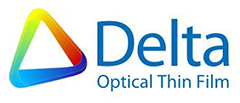
Over the past 6 months our organic traffic has increased 17.51% compared to the same period last year and the number of contact form submissions we’ve seen has risen from 0 in that period to 23
Oliver Pust Delta Optical Thin Film